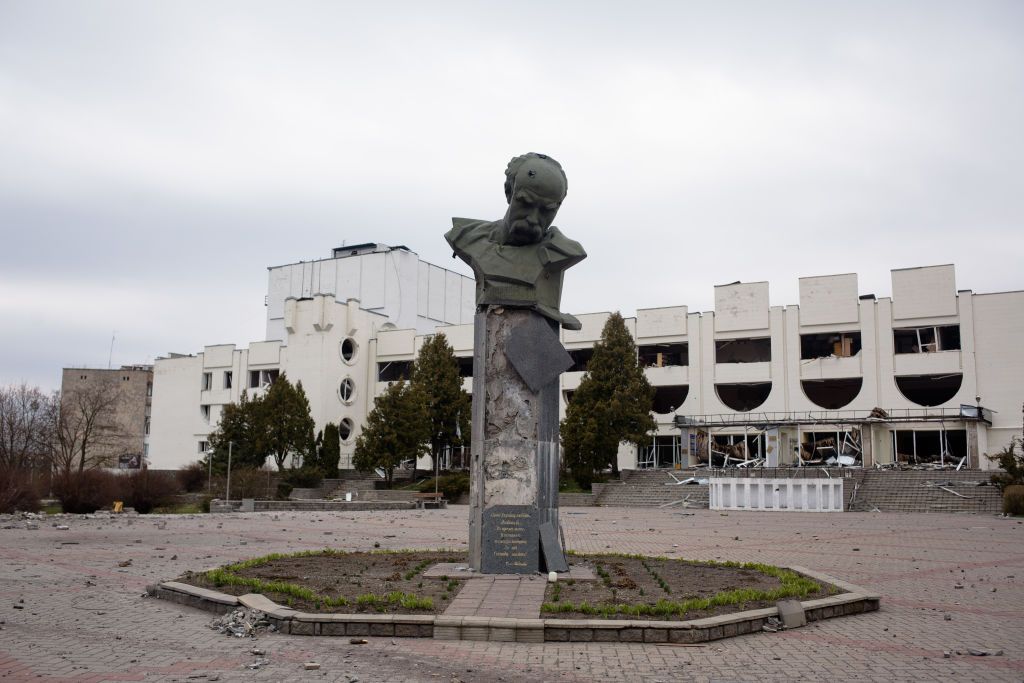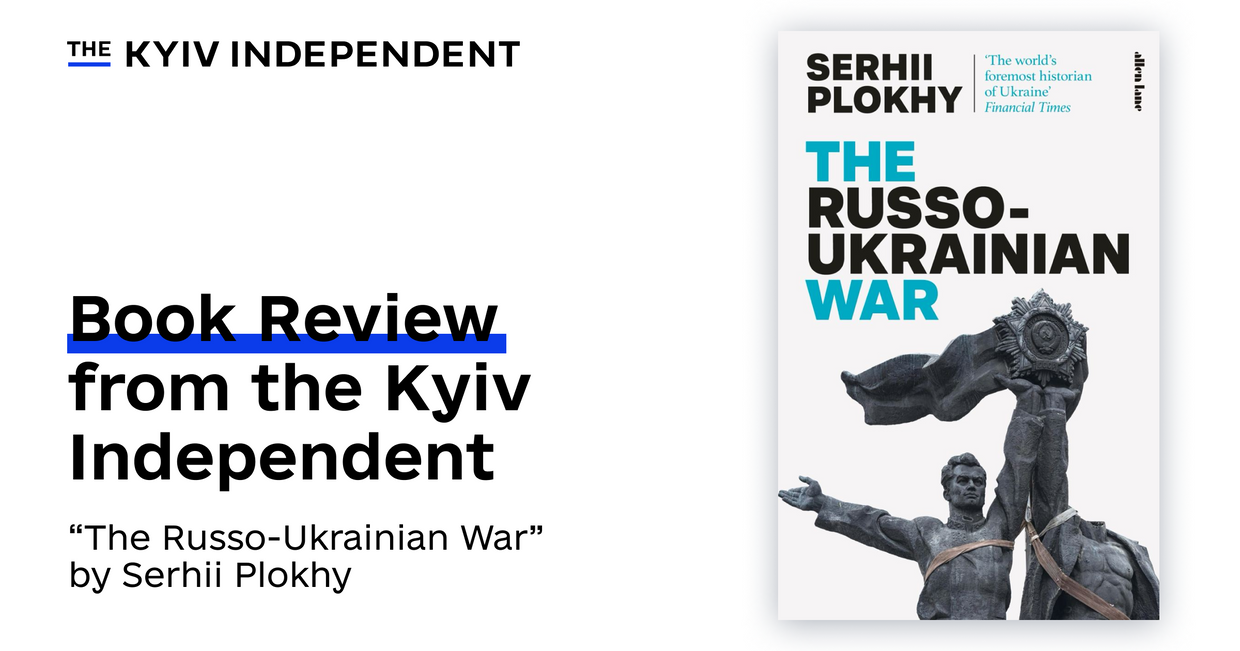Historian Serhii Plokhy: ‘The better we prepare for the long war, the sooner it will end’

As a Harvard historian, Serhii Plokhy comfortably analyzes timelines that span centuries. But in his work on the war in Ukraine, keeping up with monthly developments has been a challenge.
After finishing his latest book “The Russo-Ukrainian War” early this year, Plokhy wrote a new afterword at the end of August about the failure of Russia’s offensives and internal divisions illuminated by Wagner boss Yevgeniy Prigozhin’s abortive mutiny in June.
Since summer, however, his outlook has grown more somber, with concerns around the stalling Ukrainian counteroffensive, intensifying Russian attacks, and delay of further military aid to Ukraine.
“2024 will be a very difficult year, and it may become decisive in this war,” said Plokhy.
Ahead of the pivotal year, the historian says that European partners are preparing for the long war with the continent’s security in mind as support from the U.S. becomes more uncertain.
Congress is yet to approve the $61.4 billion in assistance for Ukraine as a part of a broader $105-billion-dollar package requested by U.S. President Joe Biden in October. House Speaker Mike Johnson said he wants a clear vision of objectives and endgame before allocating the funds.
“We see the decreasing support of the American public for Ukraine, which is the most threatening factor to me,” said Plokhy, referencing the possible 2024 U.S. presidential election outcomes and opposition from some members of the Republican party to continue supporting Kyiv.
Recent polls present a mixed picture. A Reuters/Ipsos poll showed that support for arming Ukraine went from 61% in May to 52% in October among Democrats and from 39% to 35% among Republicans. The Chicago Council on Global Affairs claimed over 60% of Americans back continued military assistance.
Plokhy hopes public opinion will recalibrate with a better understanding of the battlefield realities after the excessive expectations around Ukraine’s counteroffensive in the south.
“We need to focus on the long war,” said Plokhy. “The better we prepare for the long war, the sooner it will end.”
'Historian at a 'revolutionary rally'
As the strategy on the ground evolves to accommodate for a war of attrition, so do the narratives deployed by each side.
“Pragmatic arguments become more in demand than the dominant arguments in 2022…when the unity with Ukraine stemmed from ideological, historical, cultural, moral and ethical grounds. The emotional component was very important,” said Plokhy.
“When people talk about the exhaustion from the war, exhaustion exists on this emotional level, too.”
Tiredness gives way to conversations about the cost. The argument about the rising toll on Ukraine’s population and the strain on the budget for allies has resurfaced as people look for quick solutions, said Plokhy. Now, the critical debate will come down to the practical evaluation of the Russian threat to NATO and European security.
After presenting the book on the war to Ukrainian and Western audiences, the historian picked up on the differing priorities and perceptions in conversations. While foreigners welcomed the book as a timely historical analysis, Ukrainians asked whether it was too early to analyze the ongoing war.
Plokhy gets the sentiment — he resisted the idea when the publishers offered the book project in the early days of the full-scale invasion. Shocked by the brutality of the attack, the historian wondered how he could turn to any scholarly methods, thinking, “It is evil; you can’t really understand it or analyze it.”
But as the media came to him for a historical take on the developments, he found his angle in the discussions on the national identities, the fall of the Soviet empire, and the missteps in the international response after Crimea’s annexation in 2014.
“Looking at political leadership (around the world), they don’t learn from history, but they hopefully, thank God, can learn from their own mistakes,” said Plokhy. “Short-term memory is still present, and societies and political elites act on it, but they don’t act on long-term memory, and that’s where there is certainly a lot of work to be done by historians.”
The book also helped him to find a place for in-depth analysis in a 24/7 news cycle on social media, which reminds him more of a revolutionary rally, with emotional appeals to the fears and hopes of the crowd, than a seminar discussion.
“We have this democratization of the space where all voices are equal, and the voices of reason, at least short-term, have all the chances to be completely lost,” said Plokhy. “For historians or any experts, it is very difficult to really find their place in the context of the ongoing never-ending rally.”
Signs of change in academia
But in the familiar academic hallways, the more measured pace can turn into a slog when it comes to systemic changes in the Russo-centric approach to Slavic studies.
Plokhy calls for patience as the departments evaluate their progress, and the young generation of scholars cements the lessons learned from the war. As the Association for Slavic, East European, & Eurasian Studies (ASEEES) convenes to evaluate the decolonization of regional studies in December 2023, the historian does not foresee a clean, fast break.
“Changes in tone may happen even today, but pivotal changes will take time,” said Plokhy, who expects to see fundamental re-evaluations in the field in the decades to come.
So far, he has made note of individual trends. Lately, he said, some Russian intellectuals abroad took more personal responsibility for the country’s aggression compared to punting the societal problems to the regime’s ideology during the Soviet era.
“This immigrant community, or at least part of it, is talking about taking personal responsibility,” said Plokhy. “I don’t want to overstate it — it is not the entire Russian immigration, but within the Russian immigration, these topics are surfacing for the first time in maybe 200 years.”
Meanwhile, Plokhy’s students at Harvard attempt to make sense of the geopolitical instability by returning to the traditional themes in military and diplomatic history. However, as they fill the gaps in knowledge, seminars on Ukraine have fewer attendees than early last year.
“All in all, there is a certain exhaustion with seminars and events on Ukraine,” he said. “It is not an oversaturation yet, but we are nearing that point.”













